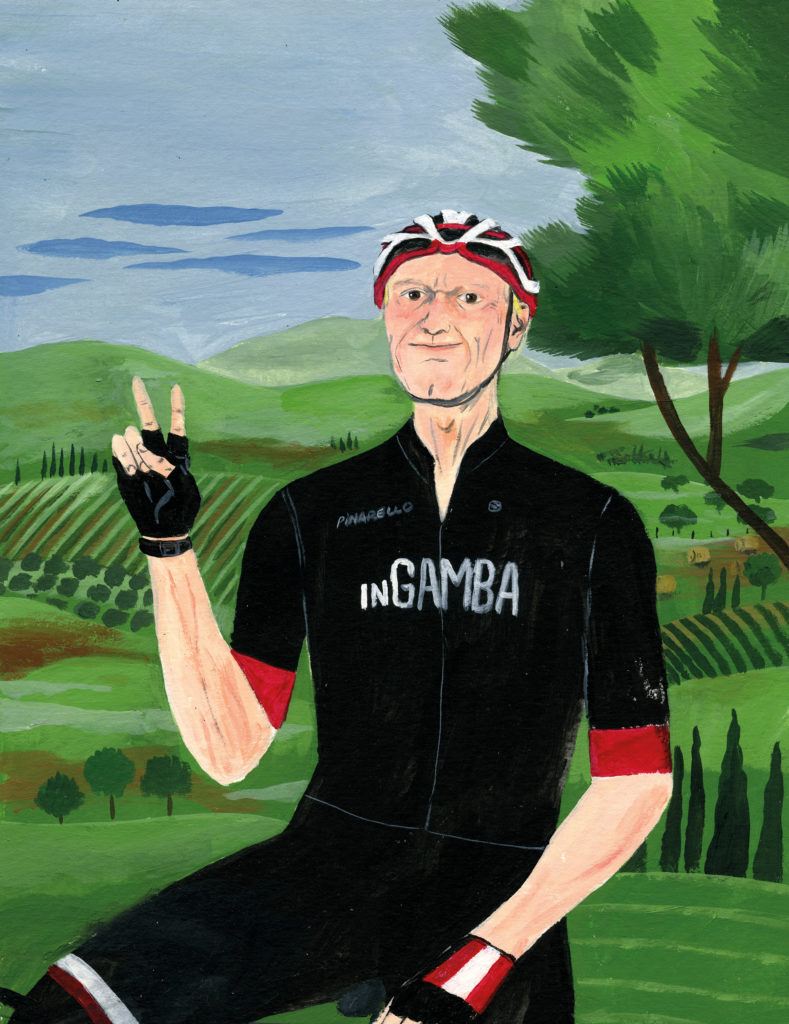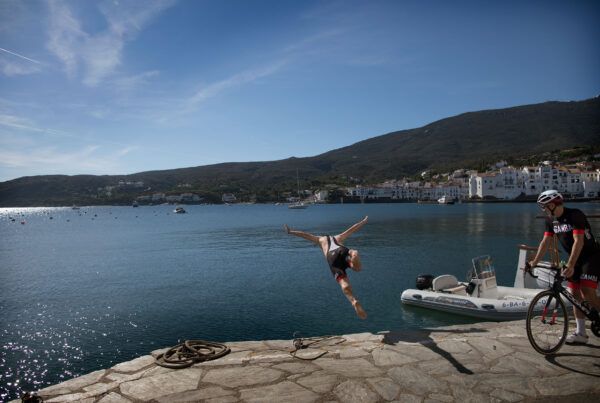Gary Halvorson is a Juilliard-trained musician with a list of directorial credits as long as your arm. His incredible career has taken him from the rarefied atmosphere of opera and the symphony to sitcoms and back again, and as you’d expect, he knows how to tell a good story.
Over the years, I’ve met a lot of interesting people on the road with inGamba. Entrepreneurs, professional athletes, a best-selling author. Successful people. The kind of people with stories to tell. Two minutes into a conversation with Gary Halvorson, though, and he had them all beat. “Hey, did you know that I have my own Muppet? It’s true. He was on the show with Prince. It’s a funny story, I’ll tell you about it later.” It’s the perfect cliffhanger, sprung with aplomb by a veteran storyteller, just as it was time for our group to drive to dinner.
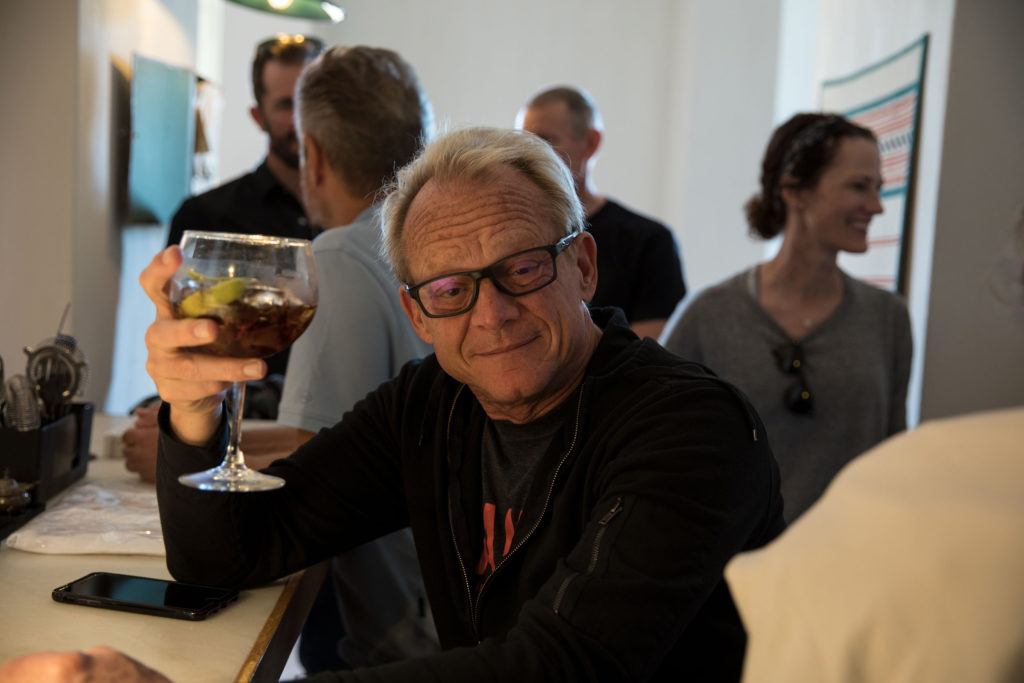
That knack for pacing should not have surprised me. Gary has worked with everyone from Paul Simon to Elmo, and if you watched a sitcom around the turn of the century, chances are he directed it. He has also directed the Macy’s Thanksgiving Day Parade, for which he won two Emmy awards. But despite working on shows like Roseanne, Friends, Everybody Loves Raymond and Two and a Half Men, these days you’re more likely to find him doing opera. Gary has been integral to the runaway success of the New York Met’s Live in HD, a series of live opera performances transmitted in high-definition video via satellite to venues around the world. It’s the job he was born to do, in his opinion, combining his impeccable sense of dramatic timing, camera craftsmanship, and his love of music. An unconventional job for an unconventional character. Sitting down to dinner in Mercearia Gadanha, a lively little restaurant in Estremoz, Portugal, I was looking forward to hearing all about it.
“I remember being in college, seeing Arthur Rubinstein play on the television. And I couldn’t help but think, ‘Why are they just showing his hands? They need to show his face.’I had all these ideas and to me they were showing the wrong things.
“So I called up the producer in New York, and we started talking. They asked me to come down to talk and they gave me an internship for the summer. That was unheard of in TV back then, but they liked me because I was a musician and nobody else on the staff was a musician.
“I learned a lot about how TV worked that summer, and about how the symphonies worked. And then Humphrey Burton called me from the BBC and asked me to fly over to the UK and start score-reading for him. That’s when you sit with the score and mark the cameras down so when the oboe or something plays, they know what number to call. I learned a lot from him and then I was hired by Great Performances back in New York. That was that, I was a director.”
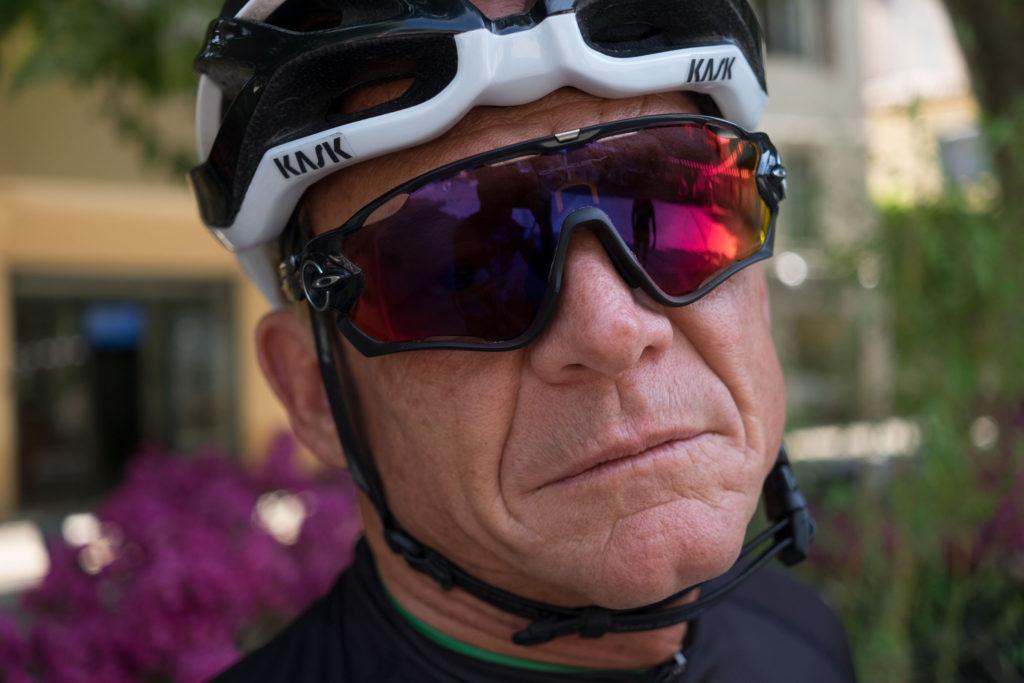
Halvorson is full of frenetic energy, and talks a mile a minute, dancing between subjects and storylines with ease, in a manner not unlike the scene changes that were a hallmark of his television work. And as the starters arrive, there’s a sharp segue from classical pianists to stand-up comedians.
“I was directing symphonies, but I’d started doing other things too. Marlo Thomas and I won an Emmy in 1989 for a show called Free to Be, and I told Marlo that I wanted to go to LA and meet her brother, Tony Thomas of Witt/Thomas, a big production company.
“When I met Tony, and he said, ‘OK, because Marlo really beat me up about this, I’m going to give you one episode of Muscle.’It was a sitcom about a gym in New York, pretty unknown show at the time, but I did well and the next year they hired me. From there, Roseanne Barr heard about me, so I started working on her show. Then I met Brett Butler, the stand-up comic, and she hired me, and I was doing Drew Carey, and all these weird shows.
“Roseanne was really the only big one. But from that I got a call, asking me to go interview for the job with Friends. My first year, I did one episode, but I ended up directing 55 in total. I was doing Everybody loves Raymond at the same time, too, so I’d go do a few shows over there and then go back and do two or three more episodes of Friends. I never had a vacation. Most of the other directors would have three weeks on and one week off, but I was always working. It was insane. I worked like that for 11 or 12 years.
“Friends was the number one show when I started there, and I got really nervous before the first rehearsal. The set was a kitchen, and I was there with Courtney Cox, whose character was supposed to be a chef. Courtney didn’t know how to cook, and she was bad with props, but I didn’t know any of that, so I’d worked out this whole scene around what she could do in the kitchen, but when I started to talk her through it, she couldn’t do it. It was too hard.
“The whole thing was falling apart on me, and when I looked off to the side, the entire cast was there watching as it got worse and worse. So I just stopped it and said, ‘You guys, I’m sorry, I’m really nervous here, this is the top show in the world, you guys are really funny and I’ve never done this quality of show before and I just hope I can do it. I’m scared shitless.’
“And they all came up to me, gave me a group hug, and said, ‘We love you already for that, just keep doing what you’re doing.’After that, we got to know each other really well and it was always fun.
“I always tried to be well-prepared, and you had to be because it was a complicated show. With Friends, they were pretty much all one-page scenes, they weren’t even really scenes, it was six lines. Watch the show, you’ll see the formula was three story lines, going as fast as you can. You’d do a handful of lines, get a really big laugh, and move on to the next scene, the B story, and so on. It was really complicated, having to do three stories every show in 23 minutes. Try to figure that out! It was hard to do, but it was a really great gig.”
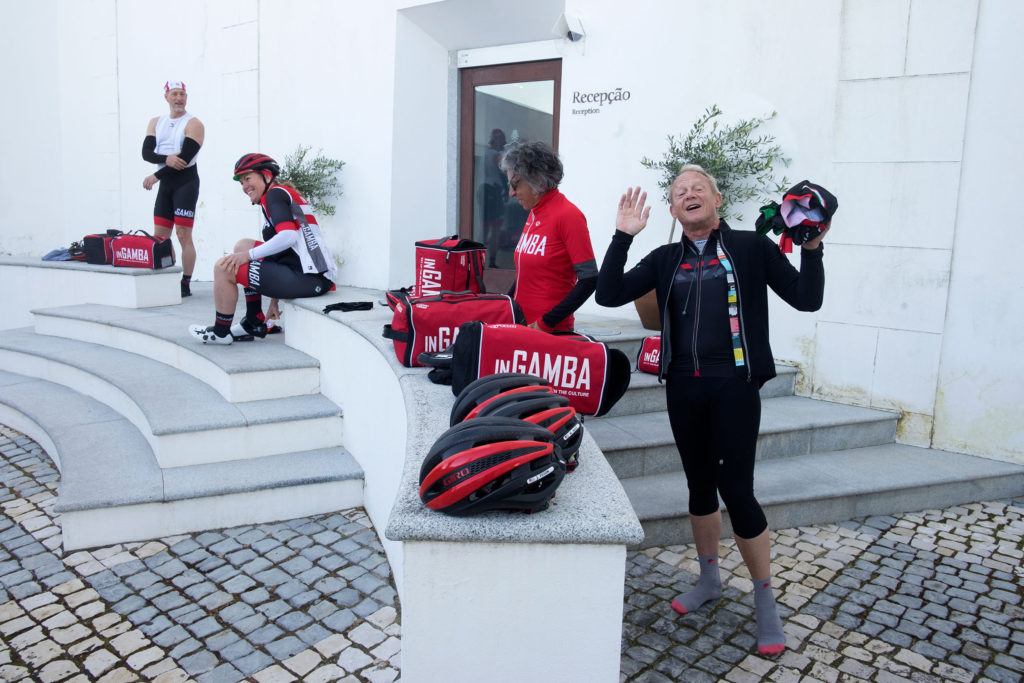
There had been a similarly nervous start to his time on Roseanne.
“I remember the very first episode I did. Shelley Winters and Estelle Parsons were both on that show, both Oscar-winning women, both notoriously difficult. Around 20 years earlier, I was studying at the Actors Studio to get better at directing, and one day, Shelley was moderating the group, so it was her job to offer criticism to whoever got up.
“For anyone not familiar with it, the Studio was a place to try things out, it was OK to fail. So Estelle gets up and does this whole exercise, playing all the parts of a Shakespeare play, all at once. I thought it was incredible, but Shelley lit into Estelle, telling her it was bullshit, and the two of them got into this huge argument.
“Cut to two decades later, and I’m directing them both in Roseanne and I still had my journal from back then, so I brought it in and read them my notes. I didn’t think they’d remember it at all, that it would just be a fun little story, but Shelley turned around to Estelle and said, ‘You know what? That really wasn’t a good exercise,’and the whole thing kicked off again. Rosey was looking at me like ‘What the hell, Gary?’I thought she was going to fire me. I’d just met these two Oscar-winning actors and I’d started a fight, but then the two of them just started laughing about it and it was all good. They liked me right away, and on a Roseanne set, if those two liked you, you were all set.”
Winters, Parsons, and the Friends cast weren’t the only ones to appreciate Halvorson’s honesty and diligence, either. It seems to be a recurring theme. In an interview with the Television Academy Foundation, the late Doris Roberts, who played the mother to the titular character in Everybody Loves Raymond, said of Gary: “I love him. Fabulous. Fabulous… He saves us, he saves us energy and time and it’s wonderful… I love Gary, he does operas and the Macy’s Day Parade, with all of those cameras. He knows his cameras, and there’s no waste of time. It’s all cleverly done and he knows what he needs to get, it’s wonderful. I think he’s the best.” Peter Boyle, who played Roberts’husband on the show, said more succinctly: “Gary knew the cameras best and the actors best.” And the producer Jeremy Stevens said: “He’s a home run, an ace. A terrific director and a great guy to work with.”
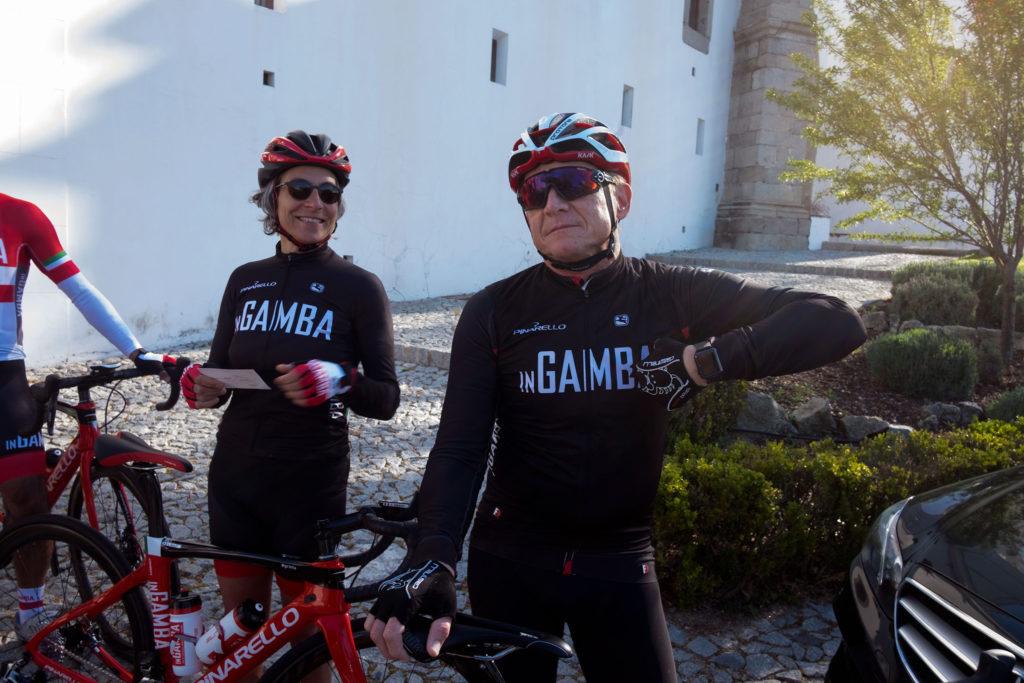
The fact that Gary has obviously built lasting and meaningful relationships with the people he worked with over the years lends a sincerity and warmth to any Hollywood story he offers to tell. He’s not talking behind anyone’s back or trying to be mean. He’s sharing a laugh while remembering a friend.
“I can tell you this because I know she’d laugh about it,” offers Gary, leaning over the crowded table with a grin. “Back in the day, when you did an episode of Roseanne, Rosey was producing and writing the show, she was very hands on, but she didn’t want to work very hard at the acting.
“So when I directed Rosey, I actually had to direct her stand-in. She had a stand-in for all the rehearsals because she didn’t like all the walking and talking, back and forth.
“She liked to sit next to me and watch the scene. In those situations, she’d always talk about herself in the third person, referring to the stand-in. I’d be doing the scene, telling the actors how to move across the room or whatever, and I’d get a tug on my sleeve. ‘Gary, Roseanne doesn’t like to do that. Roseanne doesn’t want to just be walking around. Roseanne likes to sit. But maybe Roseanne could walk over to that couch if you put a piece of cheesecake on the table.’
“I started laughing, but she was dead serious. She said, ‘We’ll get two of those good cheesecakes she likes, flown in from New York, and then Roseanne can do the scene.’And that’s exactly what happened, no arguments, no problems. We flew the cheesecake right in from Juniors in Brooklyn.
“You can always tell when it’s a hit show from the food on set. On a regular show, there’ll be Licorice Twizzlers and donuts and coffee. On something like Friends, there were salad bars and tables of fresh food a half a block long, and everyone ordered out from restaurants. If it’s a hit sitcom, you can have whatever you want, whenever you want.”
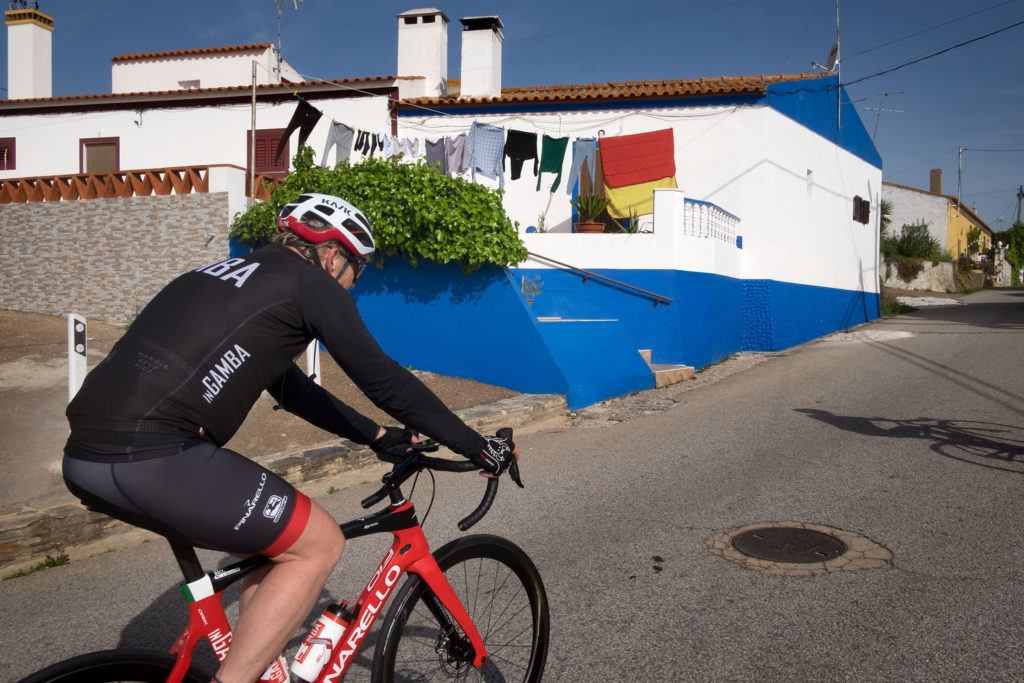
The main courses come, and it’s time to get to the Muppets. I need to know. There’s a warm, gravelly cackle the second I bring it up, either because he’s especially fond of the memory, or because he thinks it’s funny that a guy in his 30s should show such childish interest in a casual anecdote about puppets. Regardless, the throaty laugh is fitting, because it’s exactly what made the story possible in the first place.
“Jim Henson had passed away, and his son Brian was running the show. I was there about three years, doing the Muppets Tonight show. I became really close with all of the puppeteers, and it was all so much fun, I was laughing all the time. Apparently, I have a peculiar laugh, which they loved, so one of the guys decided that they’d make a Muppet of me. His name was Gary Cahuenga, and he was a ventriloquist’s dummy. He was in an episode with Prince, and then he threw himself off a building. So he only lasted half a season, three episodes I think.”
There’s a break in the conversation. Research. YouTube. Gary’s dummy has been left in a trunk in the basement of KMUP Studios for decades, only to be found by Clifford and Rizzo. When they let him out, he’s off like a shot. The resemblance is unmistakable, all laughter and wild, positive energy. He’s expecting to go on the Ed Sullivan show, right after Jerry Murad’s Harmonicats, to do a routine about Sputnik. He’s 40 years too late, but even now, another two decades since the show was broadcast, he’s still funny. As honors go, it’s not as conventional as say an Emmy, but it is definitely more exclusive, and clearly done with a lot of affection.
“Sitcoms are great,” Gary says, getting back on topic just in time for the desserts, “but you don’t get many shows like Friends or Raymond. We all knew it. You don’t get three or four number one shows in your career, it just doesn’t happen. They’re so tough to do. They rewrite so much, you never leave the show during the week, and then at the weekend you’re prepping the next one, so you never get a break. It’s hard, physically and mentally. You need to manage your money and not go insane, but if you can do that, you’ll never have to worry about anything after.
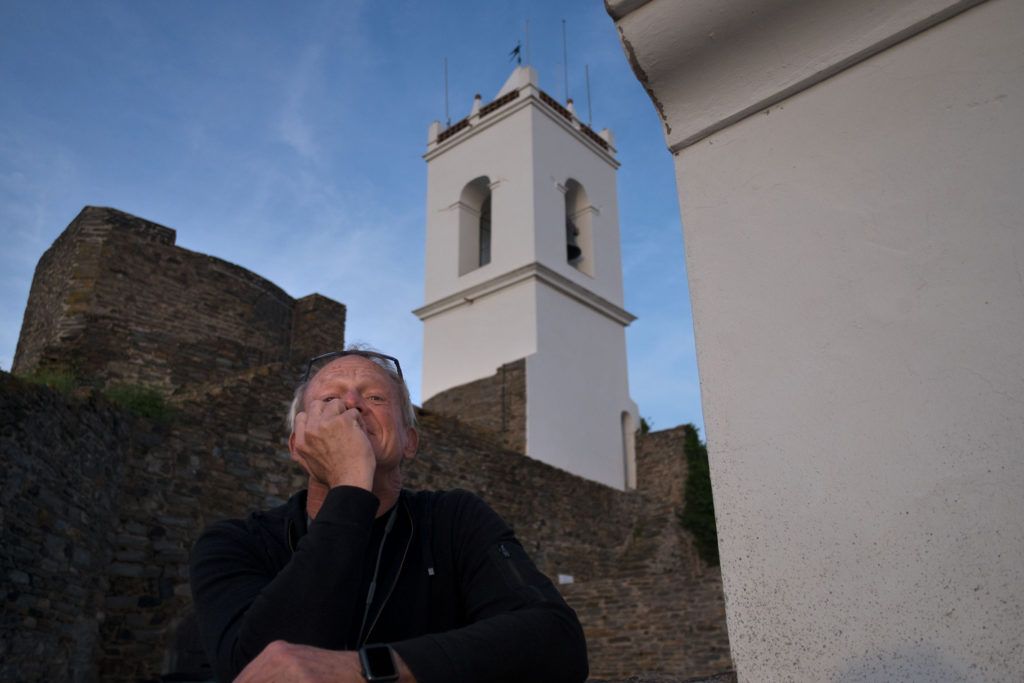
“My plan was always to come back to music. When I started in TV, I was doing classical music. I wanted to do all the things I did, the sitcoms and the award shows and the Macy’s parade, because I wanted to make money. But I always thought I’d go back to PBS when I was ready. I didn’t go there, but the whole Met Opera thing is a new format and I love it.
“Given all the crazy things I’ve done in my career, it might seem strange that I think that the opera is what I’m meant to be doing, but it combines all of the elements that I love and that I’m good at.
“There’s dance, music, storytelling. It’s all of the things that I’ve done in my life and combines it into one form. It’s definitely the thing I was born to do. That’s my calling.
“A good opera is all about the music and the story, and the story doesn’t even need to be that good, all you need is a couple of good arias. Carmen is one of the best of all time because it’s got five great songs. I try to do it like a movie, but it’s not like anything else I’ve done because I’m not in control of what’s happening on stage.
“My job is enriching the story with the composition, the close ups, that kind of thing. On a show, I could control everything, but with an opera, I have to shoot what the stage director is doing and make it look good. The trick is getting used to the scale, because what’s six inches in your living room is 20 feet high in the movie theatre. It sounds easy, but I think it’s actually the hardest thing I’ve done.”
–
